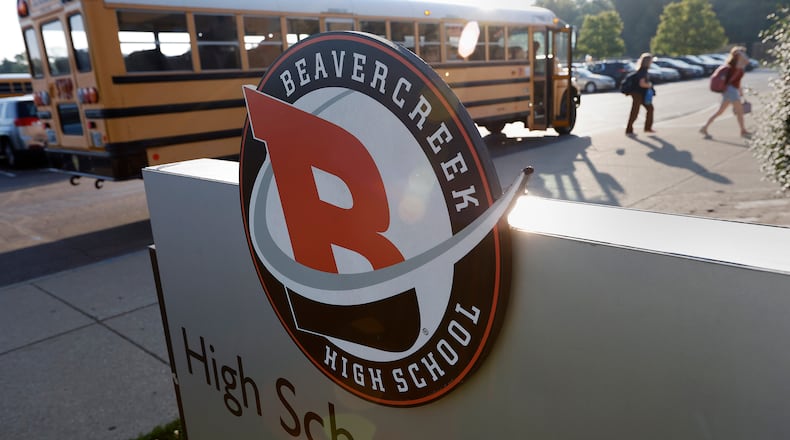House members were expected to override two other property tax reform vetoes, but stopped short because they didn’t have enough votes to meet the 3/5 override threshold. Those include a provision that would adjust the school district 20-mill floor calculation to include emergency, substitute and other levies and income taxes, and another provision that would give county budget commissions the authority to “unilaterally” reduce a levy passed by voters if they determine the funding isn’t necessary.
Beavercreek school officials say they are “very concerned” about the efforts to override DeWine’s veto, particularly regarding replacement and emergency levies.
Beavercreek has two levies the elimination will affect. Together they will collect just shy of $30 million — more than a quarter of the district’s annual revenue, the district said. The first is an emergency levy that combined two separate levies in 2010, originally approved by the voters in 2001 and 2003.
The renewal of this levy, which expires in 2026, is on the ballot in November.
The second levy was approved by the voters in May of 2019 and has been funding the district for six years. This levy will expire in December 2028.
“The impact to Beavercreek City Schools is significant,” said Beavercreek Public Relations Director Beth Sizemore. “Elimination of these fixed sum levies will cause a loss of financial stability, forcing the district to find new ways to replace the operating revenue from these two levies.”
Other Ohio districts share the Greene County school’s disquiet.
“It will affect all of us at some time or another,” said Jenny Wood, information officer for Northmont City Schools. “Until our legislature figures out a way to fund schools in a fair manner, public schools are going to suffer. More than 89% of families in the State of Ohio choose public schools. Despite these numbers, the State of Ohio continues to reduce its investment in the public education system.”
The Ohio School Boards Association says efforts to eliminate certain types of levies will make property owners’ tax burden worse — not better — by eliminating property owners from certain tax exemptions, said Nicole Piscitani, the OSBA’s Deputy Director of Legislative Services.
“By eliminating certain types of levies, the legislation prevents school districts from renewing these levies in the future. Currently, homeowners benefit from a 12.5% state-paid tax rollback on many existing levies,” she said. “If districts are forced to place entirely new levies on the ballot instead of renewing existing ones, those new levies will not qualify for the 12.5% exemption. This shift increases the financial burden on local taxpayers.”
House Speaker Matt Huffman, R-Lima, said last week he expects the House to consider further veto overrides once the legislature reconvenes in the fall, adding the provisions agreed upon by the House and Senate are incremental. The crux of the issue, Huffman said, is that many Ohioans are seeing their property taxes rise alongside their property value in a housing market where property values have soared in recent years.
“I would say these three provisions are largely in the line of transparency, clarity, and (they) give the opportunity for voters to know what they’re voting on and for locals to control taxes,” Huffman said.
DeWine’s vetoes
The Ohio governor line-item vetoed 67 items of the $60 billion biennium budget on June 30, effectively erasing nearly all of the property tax reforms the Ohio House and Senate approved in the two-year spending plan.
In his veto message, DeWine said he “was concerned that imposing them now, all of them at once, on our local schools would create a huge, huge problem … and none of them guaranteed what we would end up with.”
DeWine also put together a property tax working group, currently ongoing, with the goal of finding reform and bringing property tax relief without having an adverse effect on local taxing jurisdictions’ funding. The group has been asked to come up with recommendations by the end of September.


